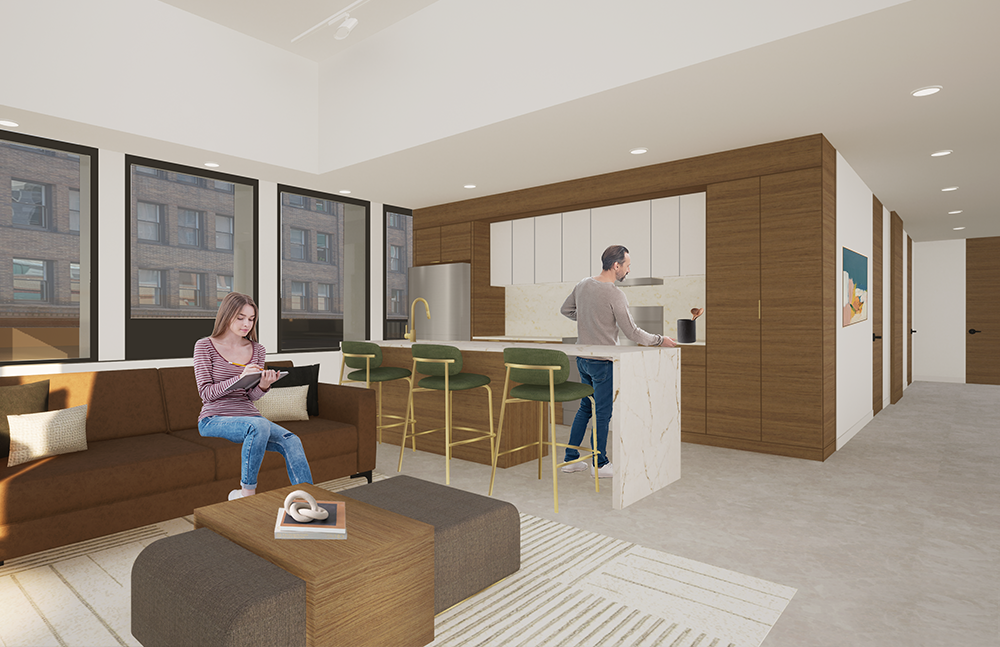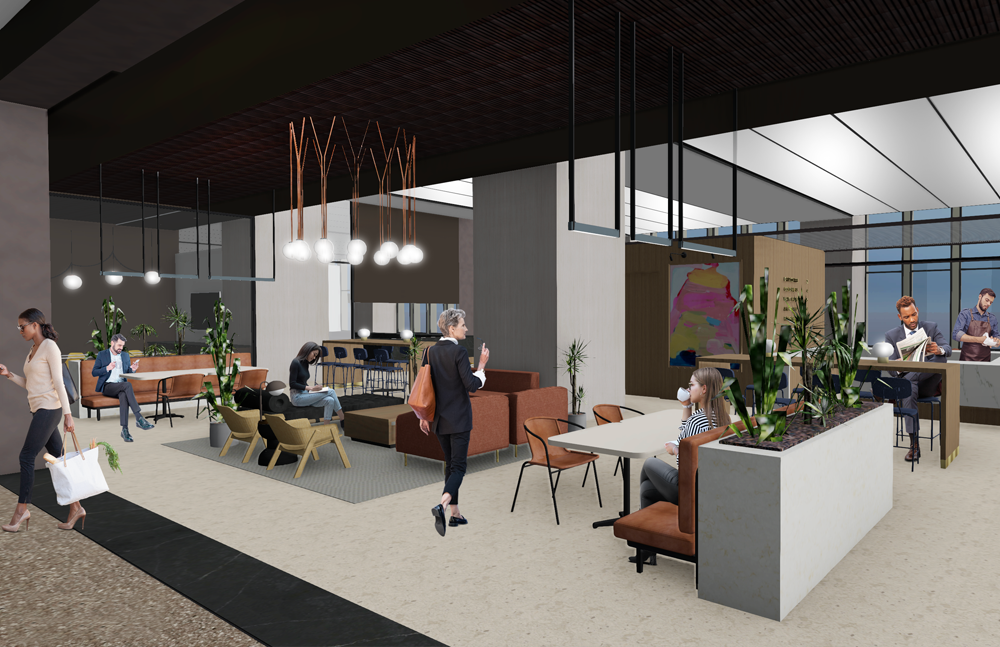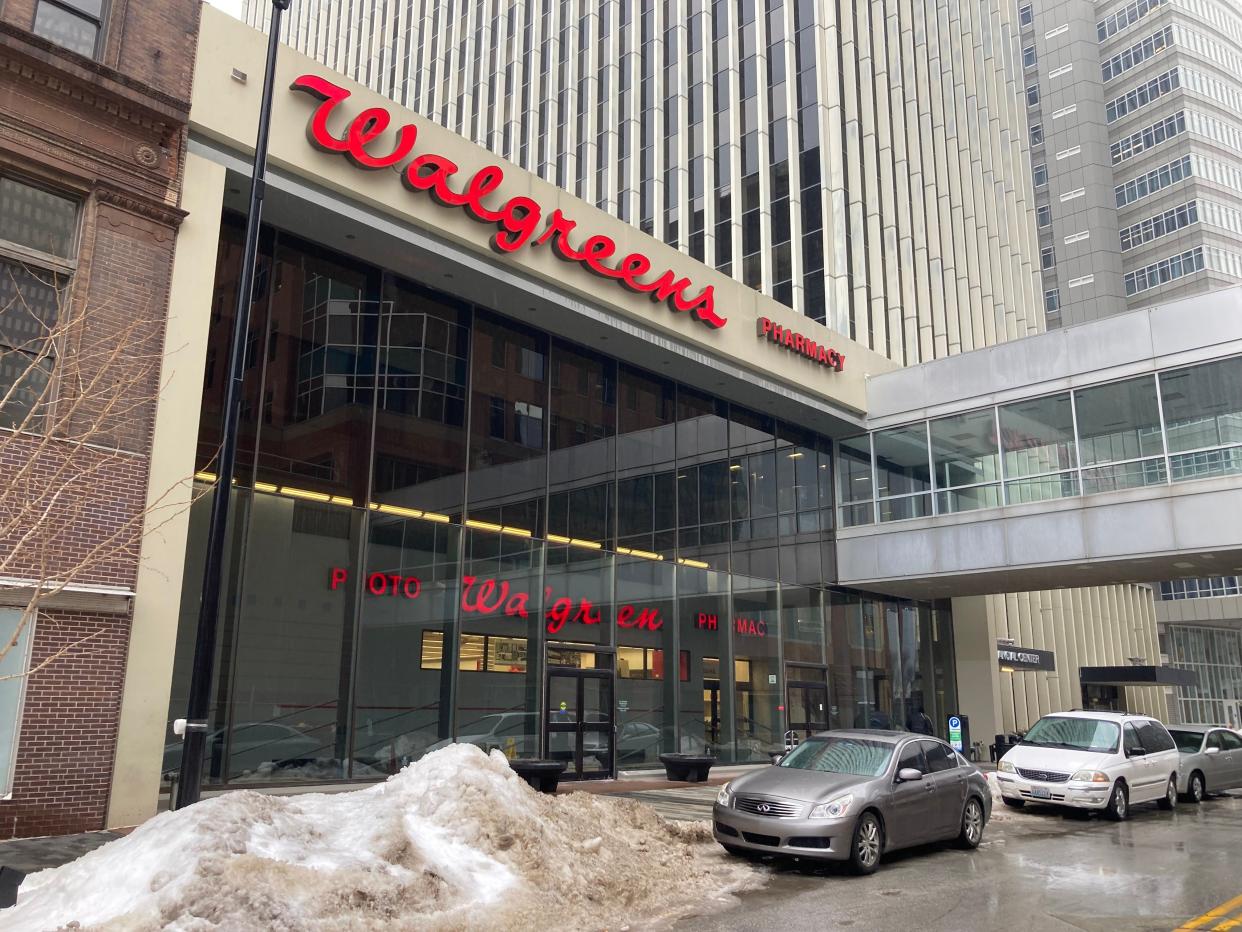Why did Des Moines' Financial Center ditch its hotel plan for apartments?
Just curious: This occasional feature in the Des Moines Register aims to answer your questions about Iowa. Is there some place, event, lore, history or cultural quirk you're just curious about? Email your question to the Des Moines Register's Bill Steiden at wsteiden@registermedia.com.
Why did the owners of the Financial Center in downtown Des Moines decide to convert 15 of its 25 stories into apartments?
The announcement last month came as a surprise, given there already was a city approved plan with financial incentives to turn that space into a luxury hotel.
But Jesse Bunney, director of operations for building owner Lawmark Capital, speaking at an April 25 Business Record forum, said what looked like a sudden pivot had been in the works for some time.
"We shifted gears about a year ago actually. We didn't tell anybody," Bunney said.
The plan to convert the floors from office use dates back to December 2018, when Wells Fargo notified Lawmark that it was going to be moving out of the 130,000-square-foot space — roughly 70% of the total in the structure at 666 Walnut St.

After consulting with experts and local developer Jake Christensen, Lawmark put together a $59.3 million plan to remodel 13 floors into 190 upscale hotel rooms with a ground-floor restaurant, rooftop bar and meeting rooms. It seemed like access to those high-class amenities would also help attract and retain office clients.
On March 23, 2020, the Des Moines City Council approved preliminary terms of a development agreement with Lawmark. It was the first meeting the council held virtually after the arrival of the COVID-19 pandemic in Iowa.
More: Des Moines' Financial Center latest office tower slated for apartments. See the others.
Bunney, speaking at the April 25 forum, said that even after COVID-19 became a factor, Lawmark was still signaling to the city that it wanted to pursue the development. Original terms of the agreement ― now amended to apply to the apartment plan ― included 15-year tax-increment finance package totaling $7.5 million.
"We went very hard for a long time with a lot of different hotel operators a lot of hotel flags. We selected Marriott and they came to town and approved it," he said. "But there just wasn't enough juice for the squeeze."
So Lawmark started to rerun the numbers. It still wanted to leverage the Financial Center's physical attributes while putting in amenities that office users could benefit from.
A fusion of office, residential and ground-level commercial space made the most sense — more specifically, a restaurant, cafe, "micro" retail along Seventh Street and 190 units comprised of studios, one-bedroom and two-bedroom units.

If Lawmark can break even on the apartments, Bunney explained, adding commercial tenants on the first floor could help make the conversion financially sound.
"We're looking at it as a really nice ecosystem. That's what we're trying to create together, and have a really nice place to work, live and thrive," he said.
In the end, the Financial Center, built in 1973, was the deciding factor. It had "good bones" and plenty of dual-pane windows perfect for residential use. Bunney said that on average, only 20% of office buildings are easy to convert.
"We just happened to get lucky that ours was," he said.
Construction at the Financial Center will begin by Sept. 30 and could be completed by the end of April 2026.
What happened to Walgreens?

A Walgreens located on the Financial Center's ground floor closed in February after 30 years there, and more than 100 years at various locations in downtown Des Moines. Corporate spokesperson Samantha Stansberry confirmed the decision, telling the Des Moines Register that the company considers several factors, including that the "dynamics of the local market," when shuttering its stores.
But, Bunney said, Walgreens hadn't shared that information with Lawmark Capital.
"They never actually notified us. They've moved out without giving us official notice," he said.
Also: Downtown Des Moines' retail implosion continues with announcement of Kum & Go closure
Lawmark currently is working through a buy-out option with Walgreens, and the pharmacy is "kind of" paying rent in the meantime, he said. The space will be adapted to fit in with the conversion project, keeping retail on Walnut Street where it will be most useful to future residents of the Financial Center and another recently-announced office-to-residential conversion, Two Ruan Center, only about a block away via the skywalk.
"We have a lot of really neat micro retailers we're implementing into our space, and we think that everything we're doing is going to really engage Sixth Street, Seventh Street, Eighth Street — all of those little areas with the mini golf coming in," Bunney said, pointing to the upcoming expansion of Omaha, Nebraska, mini golf emporium Fat Putter to the Wilkins Building just a block away. "We're very confident that we're going to have some success there."
Addison Lathers covers growth and development for the Des Moines metro. Reach her at 608-931-1761 and ALathers@registermedia.com, and follow her on Twitter at @addisonlathers.
This article originally appeared on Des Moines Register: Why apartments, not a hotel, at Des Moines' Financial Center?
